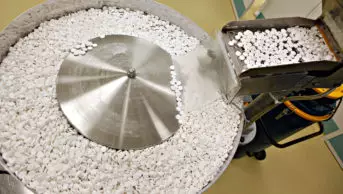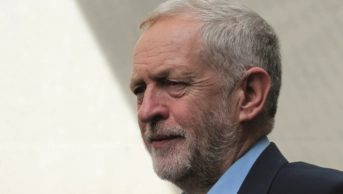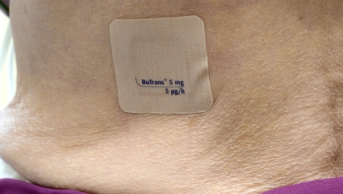
Shutterstock.om
A decrease in market competition is strongly associated with an increase in the price of generic drugs, adversely affecting the patients who rely on them, according to research published in the Annals of Internal Medicine
[1]
(4 July 2017).
In the US-based retrospective cohort study, prescription claims from commercial health plans between 2008 and 2013 were collected and the data divided into 11 six-month periods. From 1.08 billion prescriptions claimed by 57.3 million patients, a total of 1,120 generic drugs were identified.
In one of the first investigations of its kind, researchers used the Herfindahl-Hirschman Index (HHI), calculated by adding up the squares of individual manufacturers’ market shares, with higher values indicating a less competitive market, to estimate the average drug prices for the generic drugs in each six-month period.
Nearly half the generic drugs studied were found to have competition levels resembling a duopoly, that is, a competition level where only two manufacturers produce a drug.
It was also found that generic drugs with a HHI value of 2,500, which indicates high levels of competition, were associated with a price drop of 31.7% (95% confidence interval [CI], -34.4% to -28.9%), whereas those with a HHI value of 10,000, which indicates low levels of competition, were associated with a 47.4% price increase (95% CI, 25.4% to 73.2%).
Finally, the researchers found that low market competition levels have a more pronounced correlation with drug prices in lower-priced generic drugs, compared with their higher-priced counterparts.
“The connection this study establishes between market competition levels and generic drug prices should be an eye-opener for regulators responsible for the generic drug market,” says Chintan Dave, lead author of the study. “In recent years, some generic manufacturers have sought to consolidate their market power by merging with rivals, but these mergers risk decreasing competition levels in parts of an already uncompetitive US generic drug market.”
The researchers say that this could be explained by the fact that manufacturers that produce generic drugs to serve such markets, particularly those with multiple-drug portfolios, may have more leeway in raising drug prices, perhaps to offset lower profits in more competitive markets. They also suggested that the three-year review time required to gain regulatory approval for a generic drug could be another factor underlying generic drug price increases.
Warwick Smith, director general of the British Generic Manufacturers Association, says the results are unsurprising. “In the UK, the vast majority of generic medicines’ prices are controlled by competition. They vary, often significantly, according to the law of supply and demand. This is a dynamic market: high prices encourage new entrants to the market, leading to price reductions. If prices become unsustainably low, manufacturers will leave the market, reducing supply, leading to higher prices. And so the cycle continues.”

Courtesy of the British Generic Manufacturers Association
Warwick Smith, director general of the British Generic Manufacturers Association, says that in the UK, the vast majority of generic medicines’ prices are controlled by competition
The researchers acknowledge that the study is limited by the fact that the findings may not be applicable to drugs that became generic after 2008 as different mechanisms may now play a role in increasing drug prices.
However, they conclude that understanding the link between competition and price may be helpful in identifying older prescription drugs at higher risk of price changes in future.
“This study is vitally important in identifying factors that influence a change in drug price, to keep generic drugs affordable for consumers,” says Dave.
“My concern is that unless policies are enacted by the regulatory agencies to stabilise generic drug markets in response to a decrease in competition, we will continue to see cases of generic drugs subject to large price increases,” he adds.
References
[1] Dave C, Kesselheim A, Fox E et al. High generic drug prices and market competition. Ann Intern Med 2017;167:145–151. doi: 10.7326/M16-1432


